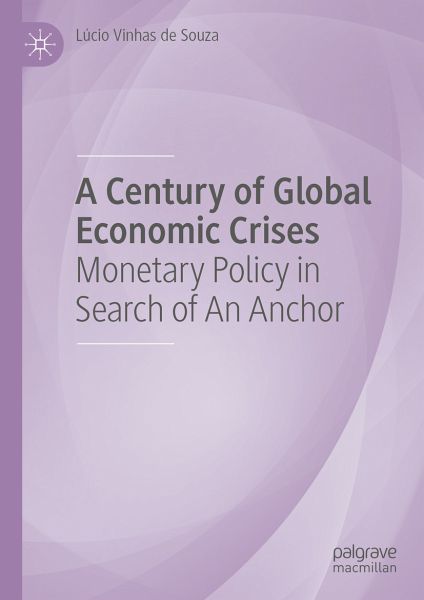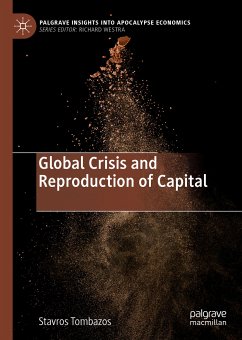
A Century of Global Economic Crises (eBook, PDF)
Monetary Policy in Search of An Anchor
Versandkostenfrei!
Sofort per Download lieferbar
104,95 €
inkl. MwSt.
Weitere Ausgaben:

PAYBACK Punkte
52 °P sammeln!
This book explores the end of the era of low inflation and stable price increases, known as "The Great Moderation", and the impact this will have on monetary policy. The macroeconomic trends and economic policy issues observed within developed countries over the last 70 years are linked with the economic theory debates of the time to highlight how the current economic challenges came about. The limitations of past economic policies are highlighted to help create a new policy framework for an era defined by high inflation, low economic growth, large budget deficits, and increased private sector...
This book explores the end of the era of low inflation and stable price increases, known as "The Great Moderation", and the impact this will have on monetary policy. The macroeconomic trends and economic policy issues observed within developed countries over the last 70 years are linked with the economic theory debates of the time to highlight how the current economic challenges came about. The limitations of past economic policies are highlighted to help create a new policy framework for an era defined by high inflation, low economic growth, large budget deficits, and increased private sector debt.
This book presents a new understanding of monetary policy that engages with the changing behaviour of economic agents. It will be relevant to researchers and policymakers interested in monetary policy and the political economy.
This book presents a new understanding of monetary policy that engages with the changing behaviour of economic agents. It will be relevant to researchers and policymakers interested in monetary policy and the political economy.
Dieser Download kann aus rechtlichen Gründen nur mit Rechnungsadresse in A, B, BG, CY, CZ, D, DK, EW, E, FIN, F, GR, HR, H, IRL, I, LT, L, LR, M, NL, PL, P, R, S, SLO, SK ausgeliefert werden.












